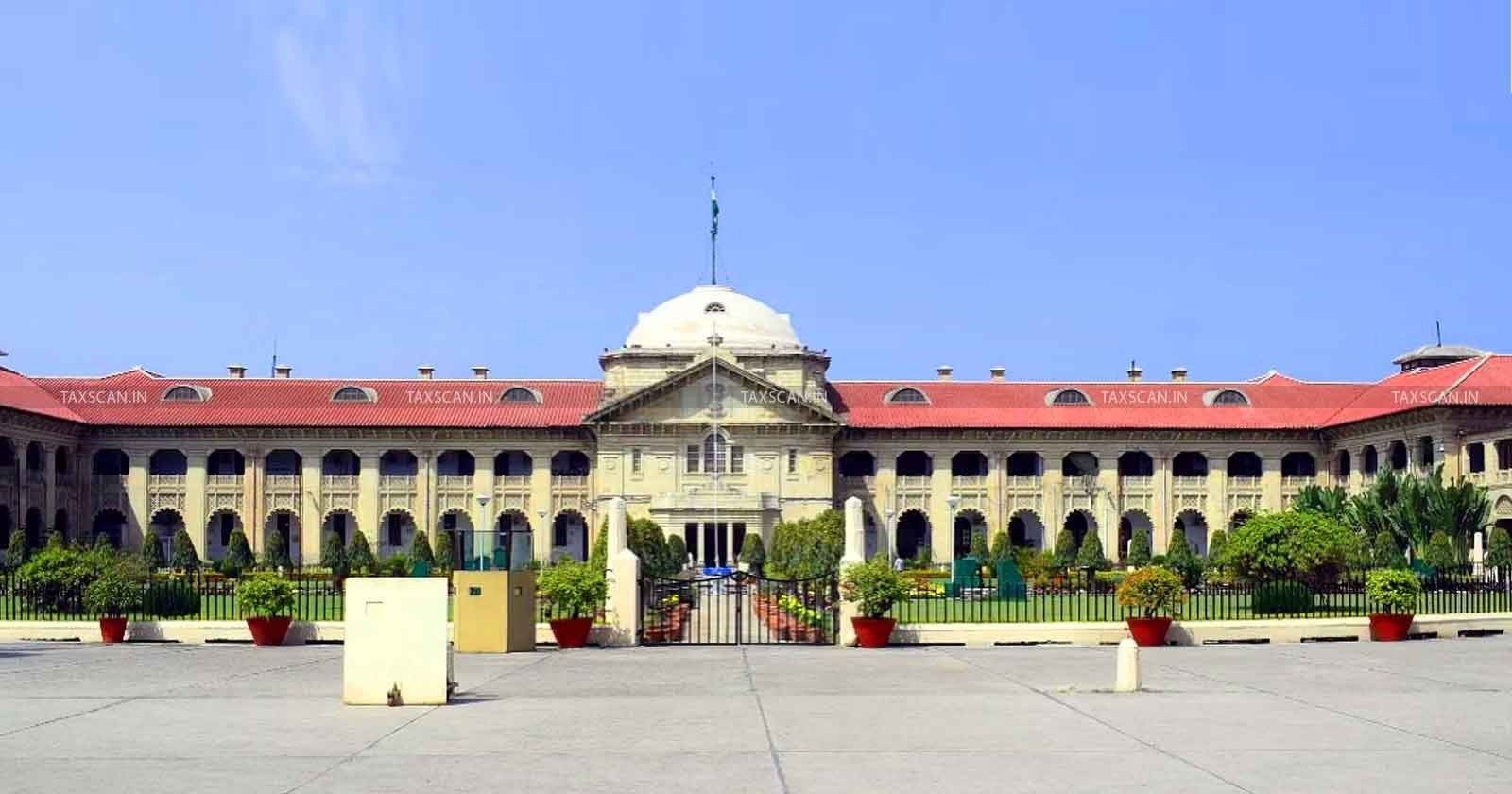S.93 GST Act Does not Permit to Determine Demand Against Deceased and Recovery from Legal Heir: Allahabad HC [Read Order]
Determination of liability, if any, must be preceded by a valid show cause notice issued to the legal representative, who must be given an opportunity to be heard before any adverse order is passed.
![S.93 GST Act Does not Permit to Determine Demand Against Deceased and Recovery from Legal Heir: Allahabad HC [Read Order] S.93 GST Act Does not Permit to Determine Demand Against Deceased and Recovery from Legal Heir: Allahabad HC [Read Order]](https://images.taxscan.in/h-upload/2025/06/07/2041638-allahabad-hc-taxscan.webp)
The Allahabad High Court has held that GST ( Goods and Services TAx ) proceedings cannot be initiated or continued against a deceased person under the Goods and Services Tax Act, 2017.
Chief Justice Arun Bansali and Justice Kshitij Shailendra quashed a GST demand raised against the late Harish Chandra Jain, proprietor of M/s Atishay Traders, observing that Section 93 of the Act does not authorize the determination of tax liability in the name of a deceased individual without issuing a proper show cause notice to the legal heir.
The matter arose when GST authorities issued a show cause notice and subsequently passed an order dated 19.03.2024 under Sections 125 and 127 of the Act, raising a demand of ₹50,000 in the name of the deceased proprietor.
Complete GST Act & Rules with amendments made by financial bill, 2025 Click here
 Also Read:GST Payer Not Obligated to Monitor Portal for 2018-19 Notice Post- Registration Cancellation on 31st March 2019: Allahabad HC [Read Order]
Also Read:GST Payer Not Obligated to Monitor Portal for 2018-19 Notice Post- Registration Cancellation on 31st March 2019: Allahabad HC [Read Order]
The petitioner, Mr. Atishay Jain, the legal heir, challenged the action, arguing that his father had passed away on 03.02.2019 and that the GST registration had already been cancelled with effect from 31.01.2019. The show cause notice, however, was issued in October 2023 well after the death and was uploaded on the GST portal, to which the legal heir had no access.
The State sought to justify the proceedings by relying on Section 93 of the Act, which provides for recovery of tax dues from legal heirs in cases where the business is either continued or discontinued after the death of the proprietor.
However, the court categorically held that while Section 93 permits recovery from the estate of the deceased, it does not authorize the determination of tax liability against a deceased individual.
 Also Read:Orissa HC Grants Relief to GST Registrant, Orders Consideration of Revocation Application Despite Delay [Read Order]
Also Read:Orissa HC Grants Relief to GST Registrant, Orders Consideration of Revocation Application Despite Delay [Read Order]
Complete practical guide to Drafting Commercial Contracts Click here
The Court stated that initiating proceedings in the name of a dead person is a legal nullity and violative of natural justice. It further clarified that determination of liability, if any, must be preceded by a valid show cause notice issued to the legal representative, who must be given an opportunity to be heard before any adverse order is passed.
Accordingly, the High Court allowed the writ petition, quashed the impugned order, and granted liberty to the tax authorities to initiate appropriate proceedings in accordance with law, this time against the legal heir, if so advised.
 Also Read:GST ITC Refund Withheld Without Challenging Appellate Order: Delhi HC Directs Department to Release Refund with Interest [Read Order]
Also Read:GST ITC Refund Withheld Without Challenging Appellate Order: Delhi HC Directs Department to Release Refund with Interest [Read Order]
Support our journalism by subscribing to Taxscanpremium. Follow us on Telegram for quick updates


